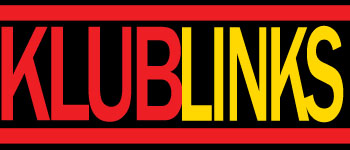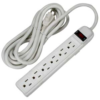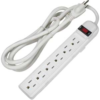
Marco Vittorelli: “A salary cap in Europe could be a smart move. Convincing Scola’s wife to stay in Italy was key to signing him”

Marco Vittorelli, President of the historic Italian club Pallacanestro Varese, discusses with TalkBasket.net the developments in the Serie A League, financing European teams and the background behind the deal with Luis Scola, which could be a win-win situation for both sides.
Varese is a name that will always resonate with anyone interested in the history of European club basketball. Although their last title came in 1999 and only twelve years ago (2008) they dropped down to the Italian second division for the second time, there is a silver lining that has kept the club afloat during hardship.
The team from Northern Italy boasts an unprecedented streak of ten consecutive appearances in a Euroleague final game, between 1970 and 1979. In a total of 5 continental cups won, plus 3 Intercontinental crowns, the third spot in the Serie A in 2013 and a lost FIBA Europe Cup final in 2016 look like a drop in the ocean.
Still, restoring the old glory days has been an ambitious goal for every Pallacanestro Varese administration, including the one presided by 62-year-old entrepreneur Marco Vittorelli. Mr. Vittorelli has been at the helm of the club since May 2016. In addition, he holds the position of Chairman of the Board of Directors at Openjobmetis, an Italian Employment Agency specialized in supply contracts, research, relocation and staff training. It’s the company that has been Pallacanestro Varese’s main sponsor since 2014, in an effort to revitalize its championship genes.
As far as the present goes, Varese – and Vittorelli- made many heads turn when Luis Scola took the stage. Scola, now at the age of 40, is a ten-year NBA veteran (Houston, Phoenix, Indiana, Toronto, Brooklyn) with 740 games under his belt and -most importantly- an Olympic gold medalist with the Argentine National Team in 2004, who covets his fifth Olympics before calling it a day. Many were surprised by the series of events that brought the former Baskonia and Armani Milano big man to Varese, but Vittorelli seems to deal with the issue in a more pragmatic way, recounting all the background stories that preceded a sensational signing that he hopes to benefit both the club and the player.
After all, we are amidst one of the most peculiar summers of all time in the European basketball market. COVID-19 has spread for good and right now, it remains uncertain whether and on which conditions the arenas will open their doors worldwide. Marco Vittorelli believes that the time for fans to return is not far away, something that can be said also about the resurgence of Italian basketball, which already displays Armani Milano and Virtus Bologna as teams capable of going all the way in European competition.
During his discussion with TalkBasket.net, the President of Pallacanestro Varese -among other pertinent issues- touched on the financial stability of clubs in Europe through the implementation of a salary cap according to NBA standards as a means to limiting the existing discrepancies.
Q: In March 2015, you joined the Board of Directors and next year became the twentieth President of Varese. What was your relationship with basketball? Which were the images and the players with whom you grew up?
A: In High School, I played basketball in Milan. It was with a team called Pavoriano, from which sprang Recalcati and Taurisano, the historical coach of Cantu. When I started college, I stopped playing American football. I’ve always been a Varese fan because as a kid, when Varese was at the highest level, you could always see the team on TV. It was the days of Dino Meneghin, Manuel Raga, Bob Morse.
In 2000, the company which I founded, called Metis, was contacted to sponsor Varese BC. We were main sponsors for two years. In 2003-04 there were still Pozzecco and DePaul playing. Our sponsorship was suspended shortly after, but in 2014 I was told that there was an opportunity to sponsor Varese again. I am a rare bird within the council because today there are some trusts that have 5% ownership of the club and also another group of medium-large companies that support basketball. They want to draw the lines for the future so that they can see the team at the highest level in the next three or four years. There are still things to complete: renovate the arena in common agreement with the Lombardy region. We want to complete the current tribune, create skyboxes, a small museum and bring the arena to Euroleague standards in terms of capacity.
Q: Are you hoping to be able to play the Euroleague in the next few years?
A: In my opinion, in 4-5 years’ time, television rights in Italy should reach such a level where at least a share should go back to the teams so that they will be able to participate in European competition. Today we receive practically nothing from television rights. More or less, each team receives from 100 to 150,000 euros. The basketball TV rights today are worth 4-5 million, while those of soccer more than a billion. The money basketball makes in Italy amounts to 10% of the sum derived from the paying spectators of soccer. So, the TV rights for basketball should be at least 10% of soccer’s TV rights , but even if they amounted to 5%, it would mean that teams would get 50 million instead of 5. I have no doubt that we’ll get there in 3-5 years. Basketball is a very televised sport, but it hasn’t been able to keep up with soccer because live broadcasting of games came late.
Q: When will you be able to know the usable capacity of the arena? What do you hope to achieve?
A: We don’t know yet, but we believe the minimum will be from one-third to 50% until Christmas. Then, it could go back to normal. I think one out of three fans will be there because family members can be seated next to each other. The important thing will be to manage entrance and exit in an orderly manner, creating a very efficient organization.
Q: What were the consequences of the early suspension of the league? Do you think it was a mistake to stop? Did it make people in Italy forget about basketball?
A: It was a very thoughtful decision because the problem is that many foreign players wanted to return to their countries and after the suspension they couldn’t. It would have been difficult to keep them in Italy. In addition, on June 30, all player contracts expired. There would be certain costs and the teams would go into a big economic deficit. There was no foundation to keep teams up. Some cities, such as Brescia, Cremona and partly Milan, have been hit hard. The pandemic was very strong and violent. Many people were taken away and buried without their relatives being able to see them anymore.
Q: What are the prospects for a season that will start with a big question mark?
A: On the occasion of the 75 years of the Italian League, we will have a Super Cup in September that should reignite attention and enthusiasm. All the Serie A teams will be involved in this competition that will conclude with a Final 8.
Q: How did the Final Phase in Germany and Spain respond to your expectations?
A: We followed the action from a little distance. Even in the case of Italian soccer, the fact of playing every three days, seen from a competitive standpoint , makes the sports result a bit questionable. Giving people a sense of normality by resuming play is nice, but I don’t know if the best team won.
Q: There is a provision for a COVID clause in players’ contracts. What do you expect to achieve?
A: In the new contracts, we have arranged for players to be paid for as long as they play, in the case of another suspension. It was a condition accepted by everyone. For now, all of our players have signed the COVID clause. It was not dictated by the league, but most teams included it into their contracts.
Q: Do you think Italian teams will have to overcome a certain prejudice about the country for having been the epicenter of the virus in Europe?
A: Maybe, for some American players. For Europeans, it’s certainly not true because they know the situation in a fairly detailed way. The only concern is for American players who might – whether for quarantine, transportation or family issues- face difficulties. Those worried about coming to Europe do not understand that the situation here today is better than in the USA.
Q: Shutting down the season in Italy was for the benefit of Armani Milano, as Massimo Zanetti, owner of Virtus Bologna, said?
A: In my opinion, no. The decision was made unanimously. We had various evaluations that expected us to be able to start again on May 15 or June 1, but the truth is that with the return of the players from abroad and the quarantine they would have to endure, the season could not have finished. Milano did nothing but acknowledge that by June 30 one could not play. Bologna has made a proposal to continue the season in the months of July, August and September, but it was a hypothesis that did not take into account the fact that contracts expired, players would not have been the same, many of them would not have had a break…
Milano has not taken a decision unilaterally, even if its weight and importance- as a team, city and budget- were important factors. I’m against making things personal. As in all situations, you have to look at the majority. Even if Milano said yes, the other 16 teams refused to continue.

Q: What is Varese’s relationship with its historical opponent Cantu, not to mention Bologna and Milan?
A: It’s good, in general. Cantu, in addition to being our traditional rivals, emerges today as a competitor. I do not feel that the urge to win is the same when Milano, Cantu and Bologna play each other. Every win is important, regardless of opponent. I know personally and have excellent relations with Mr. Armani and Mr. Zanetti. Within the league, each team has different priorities, depending on whether it participates in the Euroleague or the Champions League.
Q: Having said that, what’s the budget range for most Italian teams?
A: Apart from the big ones, teams roughly oscillate between 3-3,5 million and 6 million euros. Then, there are some teams over 10 million, like Milano and Virtus, while Sassari is very close to that sum. The administrative costs for each club are about two million. Everything else is the budget for the players. If the television rights were to start funding the teams with a million or more, it is clear that the level would rise immediately because the money would go to the players.
Q: Do you think that today supporting a basketball team financially depends exclusively on the generosity of an entrepreneur or a group, as Luca Baraldi, CEO of Virtus Bologna, said?
A: If we’re talking about a budget like theirs, definitely. If we’re referring to the 3-6 million budgets, there are clubs that do it for passion, but also in order to gain visibility and contacts. It’s investment money. I was told that Giorgio Armani has made significant advertising profit in Euroleague games, which in the end is enhancing the visibility of the Armani brand. Having such a strong ownership and playing the Euroleague allows Armani, which is a world-renowned brand, to surpass all companies that do not “travel” all around Europe and are based in Italy. So, it’s not just about the strength of an important club, but about a brand that enjoys international visibility.
Q: Does it make sense to you that Massimo Zanetti has decided to personally pay off the damages for this season, in addition to increasing the budget for the next one?
A: I do not know the numbers: which part of the budget stems from the company (Segafreddo) and which sum goes to the staff. Mr. Zanetti has a great passion for sports, so his interest is also personal. No wonder. For me, it’s all for the benefit of Italian basketball.
Q: What’s your take on some Euroleague teams having almost unlimited budget?
A: These are very difficult rules to set. You can’t stop someone from spending. To impose a minimum of budget would be possible, but to limit the financial commitment of a group is impossible, although it would be nice. A salary cap could be a smart move. What was done in a rigorous manner in America could be useful in Europe too, so that smaller teams would be able to get stronger.
Q: Ιn general, how could potential and existing investors be encouraged to finance a basketball club?
A: In my opinion, the salary cap – if applied very well – could be interesting. To attract more investments, you always have to give visibility. The numbers of viewers in America are not comparable with the European ones. You have to work better in the marketing sector, like the NBA does. The Euroleague and the Champions League are organized very well, but the way they are being marketed needs to improve.
Q: Does the return of personalities like Messina and Datome, as well as the signings of Milano and Bologna, say anything about the dynamic of basketball in Italy?
A: It does, even in the light of the pandemic. These important developments are a sign of great will to revive the sport and the teams. We in Varese were lucky enough to attract Luis Scola, who is a very important player. These signings of Milano and Varese will certainly bring more spectators, attention and media to a sport that has the right to occupy more space in Italy compared to soccer.
Q: What does signing Luis Scola mean for Varese and how did the venture become possible?
A: He missed the opportunity to play his fifth Olympic Games this year because of COVID. Therefore, we knew he would be interested in playing for another season. He was feeling physically and mentally ready to face another year without the heavy Euroleague schedule that imposes three games a week upon the players. He contacted us for a first meeting with our coach and sports director through some Argentines who live in Italy, such as Javier Zanetti, the ex-soccer player who was Inter Milan’s captain. His role was very useful. The Argentine friends that Zanetti introduced me to tried to appeal to the emotional-human aspect of Scola’s character.
Zanetti is a good friend of his and he managed to schedule a personal meeting with Luis, in which I explained to him that it would be a great honor if he came to us. Surely, we would give him the opportunity to play and practise with a historical team that he knew very well.
From a logistical point of view, he confirmed that the only problem was to talk things over with his wife because she had been left with the impression that Luis would end his sports career in 2020. We did everything possible to convince her that it was a good decision for them to stay in Italy because the timing for a return to Argentina was less than ideal, since they are still having serious problems with the pandemic. Luis had promised his wife that they would go back to Argentina, but eventually talked her out of it. Varese is a very green and pleasant city. They found a nicer house than the apartment they had in Milan. Then, he found a European School for his children, which is always a helpful situation for an international player.

Q: How did you manage to combine the addition of Scola with a more or less limited budget compared to last year?
A: Luis had a discussion with us in which he said: “The economic part is not as important as keeping my family happy and living in a beautiful house that gives me peace of mind with regards to my sports activity”. The economic aspect was never a real issue. Luis wanted to stay fit so he could play the Olympics and keep his family calm and in line with his goal. Knowing a little about Argentine culture, I would say that Luis is going to have a very good time here because he will be surrounded by people that will make him feel at home.
Q: In his contract there is an option for the 2021-22 season. Why did you feel the need to include it?
A: You never know. He said he wants to play until the Olympics and that he really likes Varese as a city. The possible renewal of his contract is purely academic, a hypothesis that will be evaluated at the end of the season. There may be a chance to keep him after 2021, if he would like to stay in Italy. As soon as he gets to know the Varese fans, there will be no problem if he wants to continue. I don’t think he’ll change city if he decides to keep playing.
Q: Andrea Conti, the GM of the club, said that with Scola the Varese brand acquires added value. How far could this value go? I mean, what would his presence mean?
A: First of all, we have many young guys. Luis will definitely be the first one to show up in practice and the last one to leave. He is a rare case of a character: very determined and focused on his profession, presenting an unparalleled example for the young players we have signed this year. If they find the way to make the best of this example, it will be a means to improving their professionalism. If they are smart, they will learn a lot more this year than in the rest of their career. There is no need to do anything but observe what Luis is doing, in order to understand why he got there.
Q: In the future, would you consider having again Gianmarco Pozzecco as the coach?
A: We already had him for a few months (during the 2014-15 season), but never say never. Today he is doing very well in Sassari. Back then, the emotional aspect influenced him. I would not rule out his return; not in the near future, but at some later point.
Q: Why has basketball in Italy always been a case between teams from the North?
A: It has to do with the economy of the country. Roma had an ownership that led the club to important seasons in a certain period and the North was influenced by the presence of entrepreneurs who were doing business there. However, the passion for basketball is the same almost everywhere in Italy.
The post Marco Vittorelli: “A salary cap in Europe could be a smart move. Convincing Scola’s wife to stay in Italy was key to signing him” appeared first on TalkBasket.net.
Marco Vittorelli: “A salary cap in Europe could be a smart move. Convincing Scola’s wife to stay in Italy was key to signing him”
| Divisions of Shy Paris Entertainment | ||||
|---|---|---|---|---|
| Shyparis Entertainment | Shy Paris Bookings | Linkz Radio | Klublinks | Shy Paris |
Klublinks is a Division of
❤Shy Paris Entertainment ||||| International Spectacular Events, Stellar Event Planning and Management, & Celebrity Booking Agency. Please contact us as we can provide you with both international and/or local renowned full service event planning and management, & celebrity bookings at shyparisentertainment@gmail.com or
CONTACT: Email: shyparisentertainment@gmail.com
Facebook: ShyParis Youtube: @Shyparis Twitter: @Shyparisent Instagram: shyparisentertainment Whatsapp: 1-437-259-3399
✶✶✶✶✶✶✶✶✶✶✶✶✶✶✶✶✶✶✶✶✶✶✶✶✶✶✶✶✶✶✶✶✶✶✶✶✶✶✶✶✶✶✶✶✶✶✶✶✶✶
SHY PARIS ENTERTAINMENT COMPANIES
✅ ShyParisentertainment.co – https://shyparisentertainment.co
✅ Shyparisbookings.com – https://shyparisbookings.com
✅ Linkzradio.com – https://linkzradio.com
✅ Klublinks.com – https://klublinks.com
✅ Shypariswebdesign.com – https://shypariswebdesign.com
✅ ❤️ Shyparis – htttps://shyparis.com❤️





